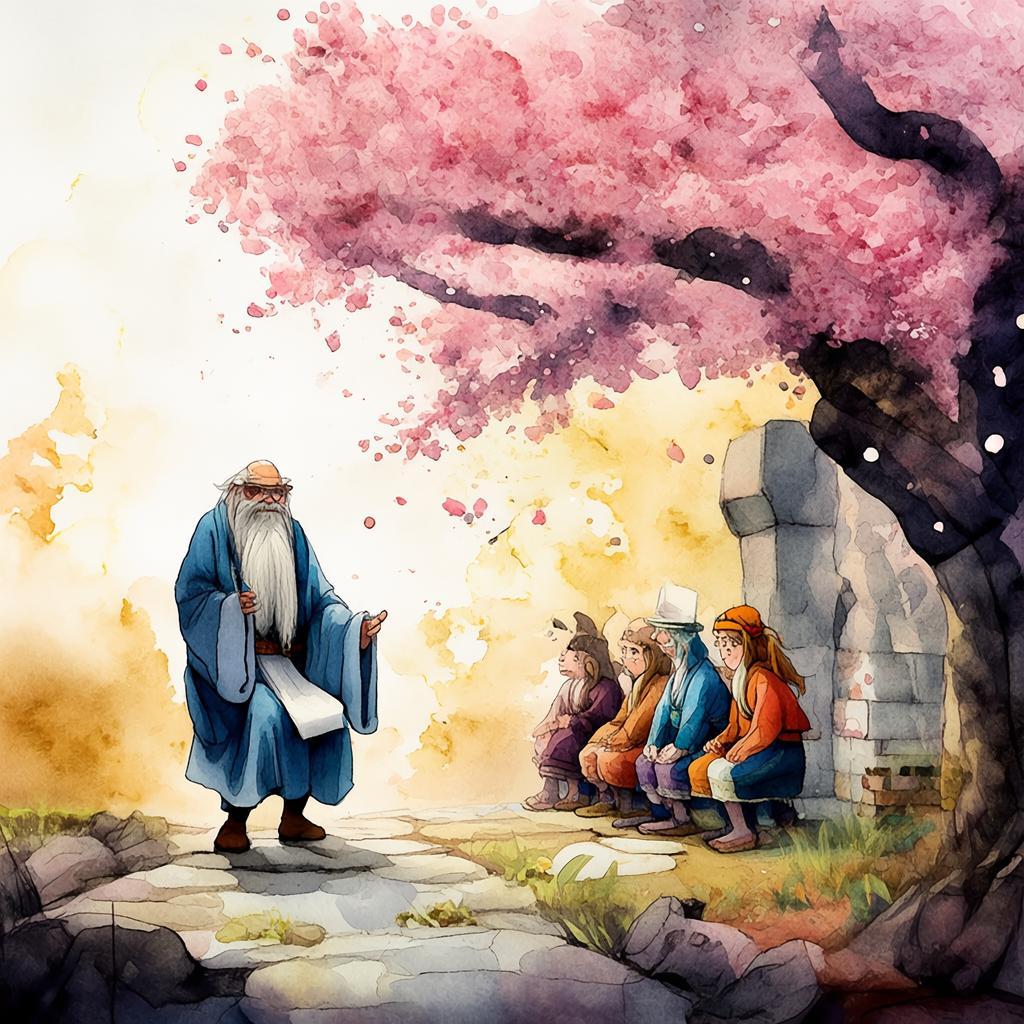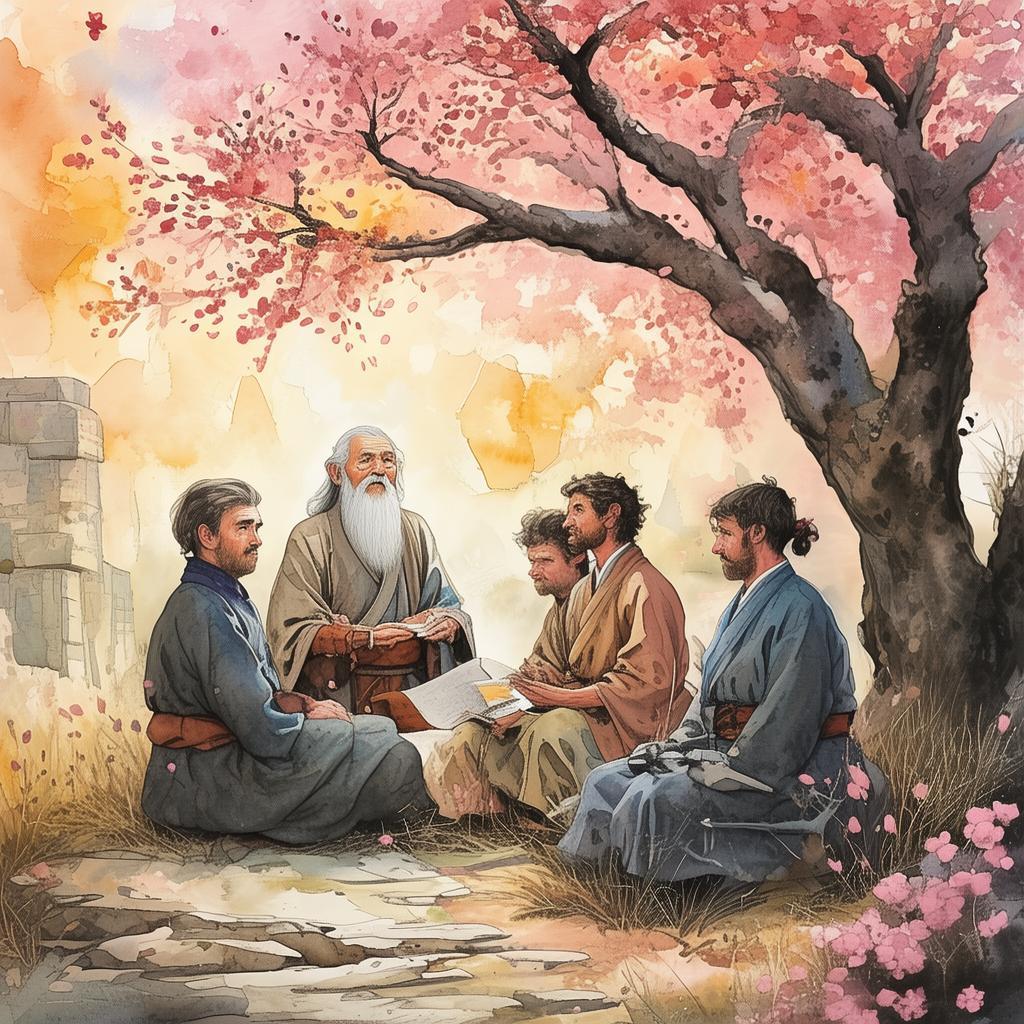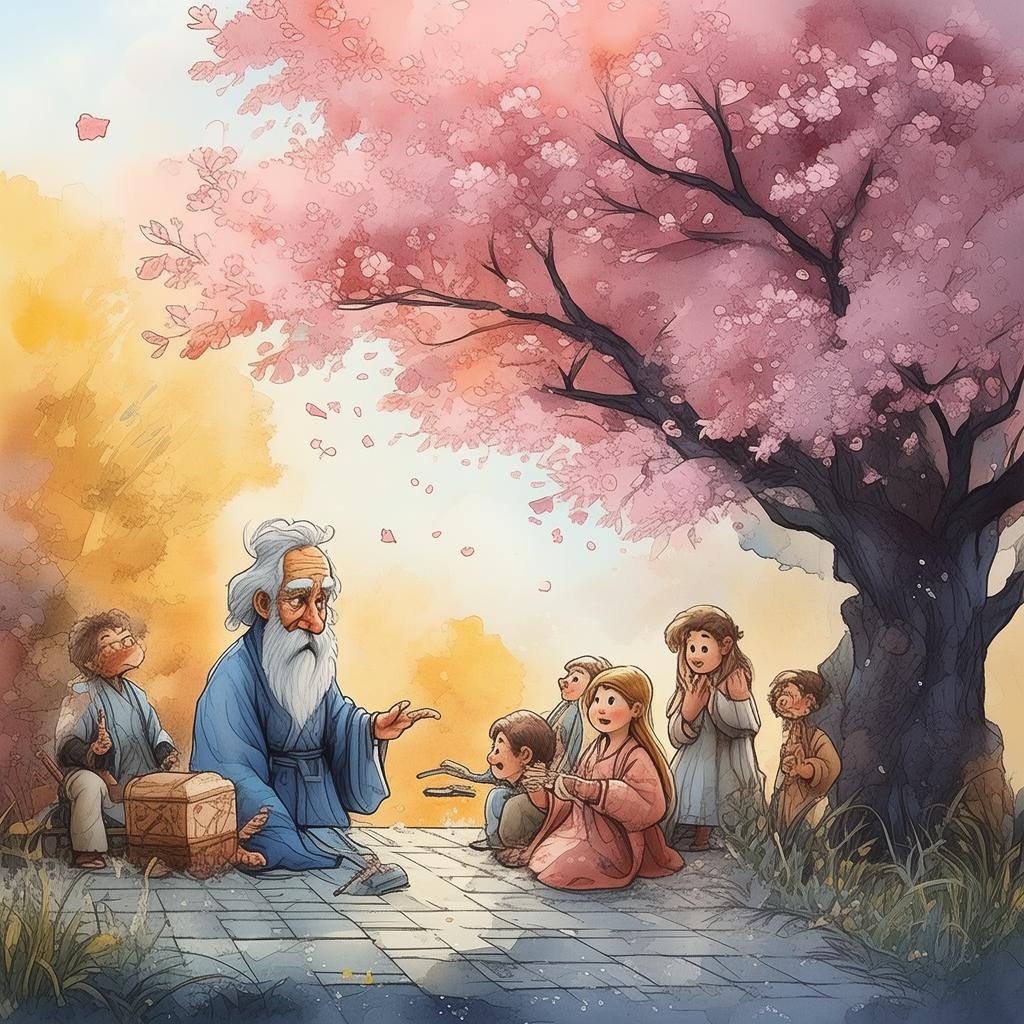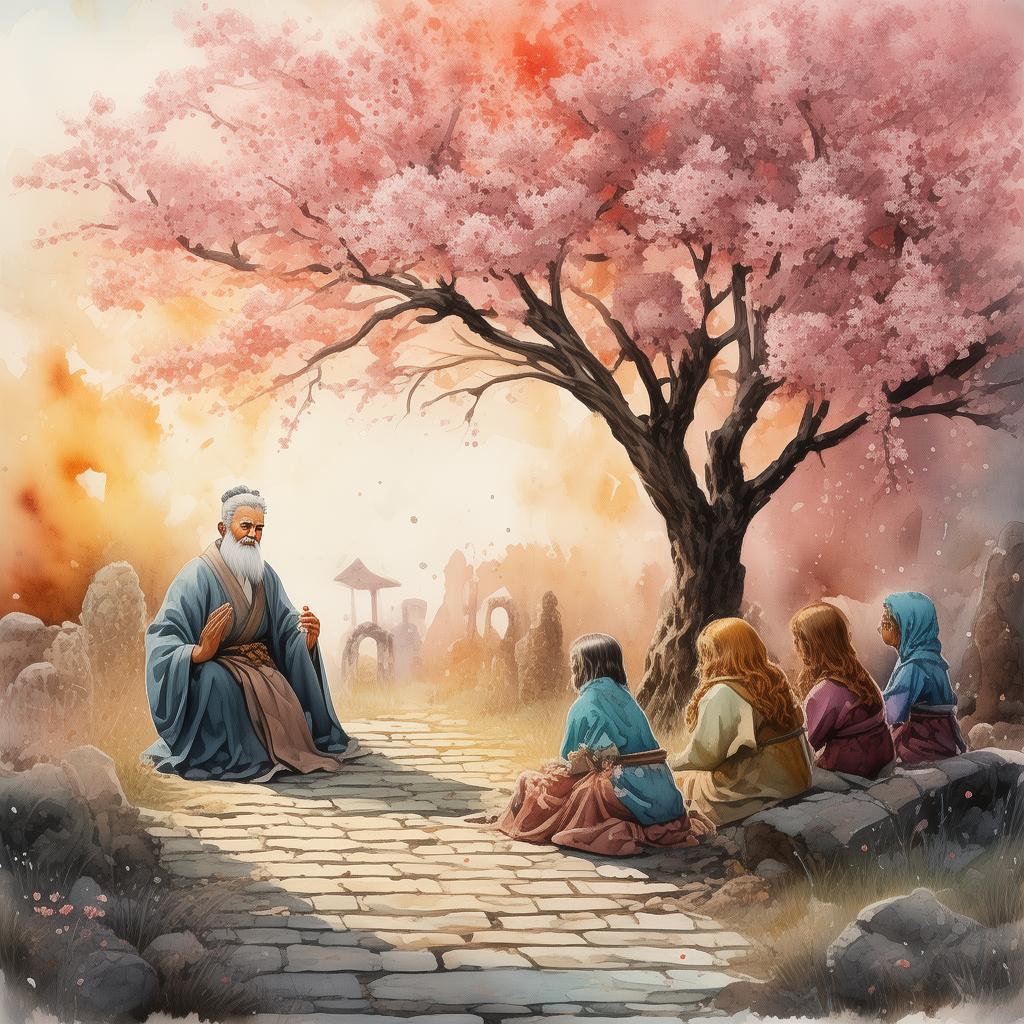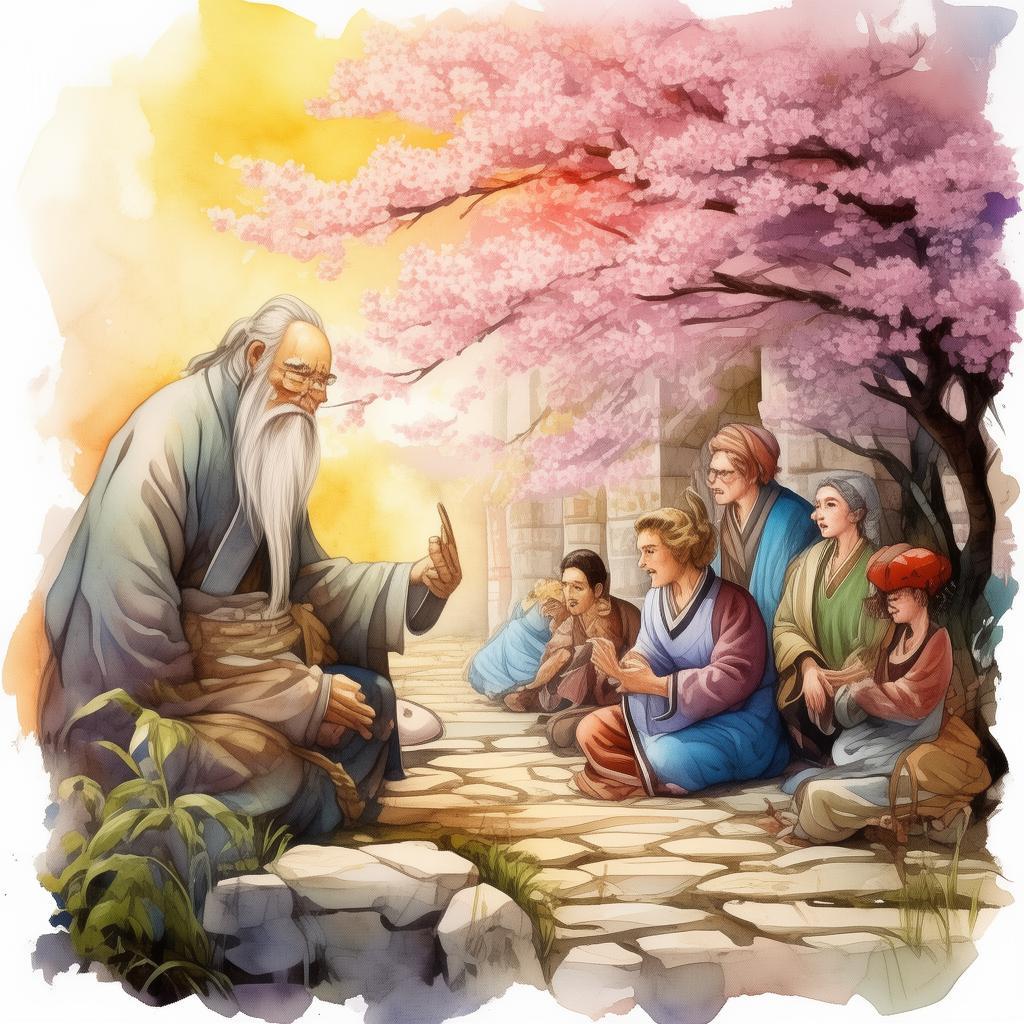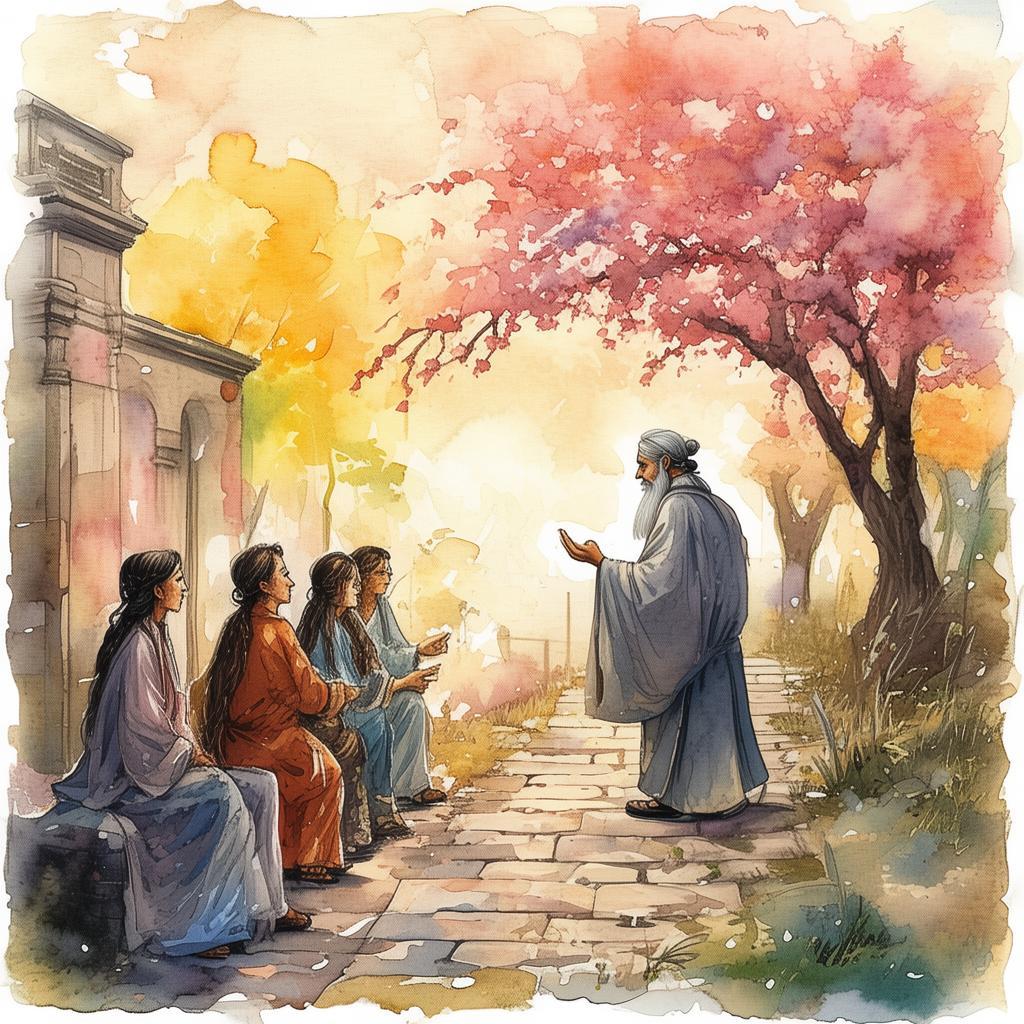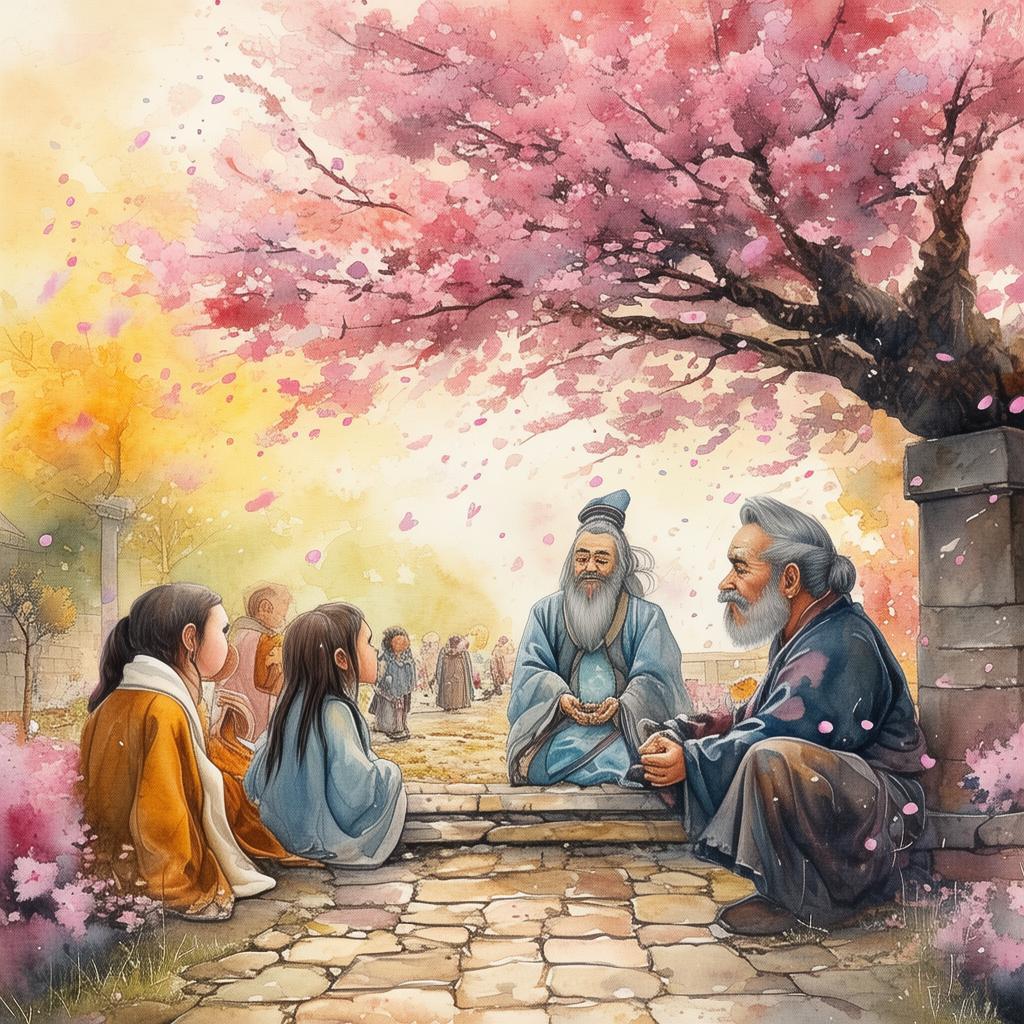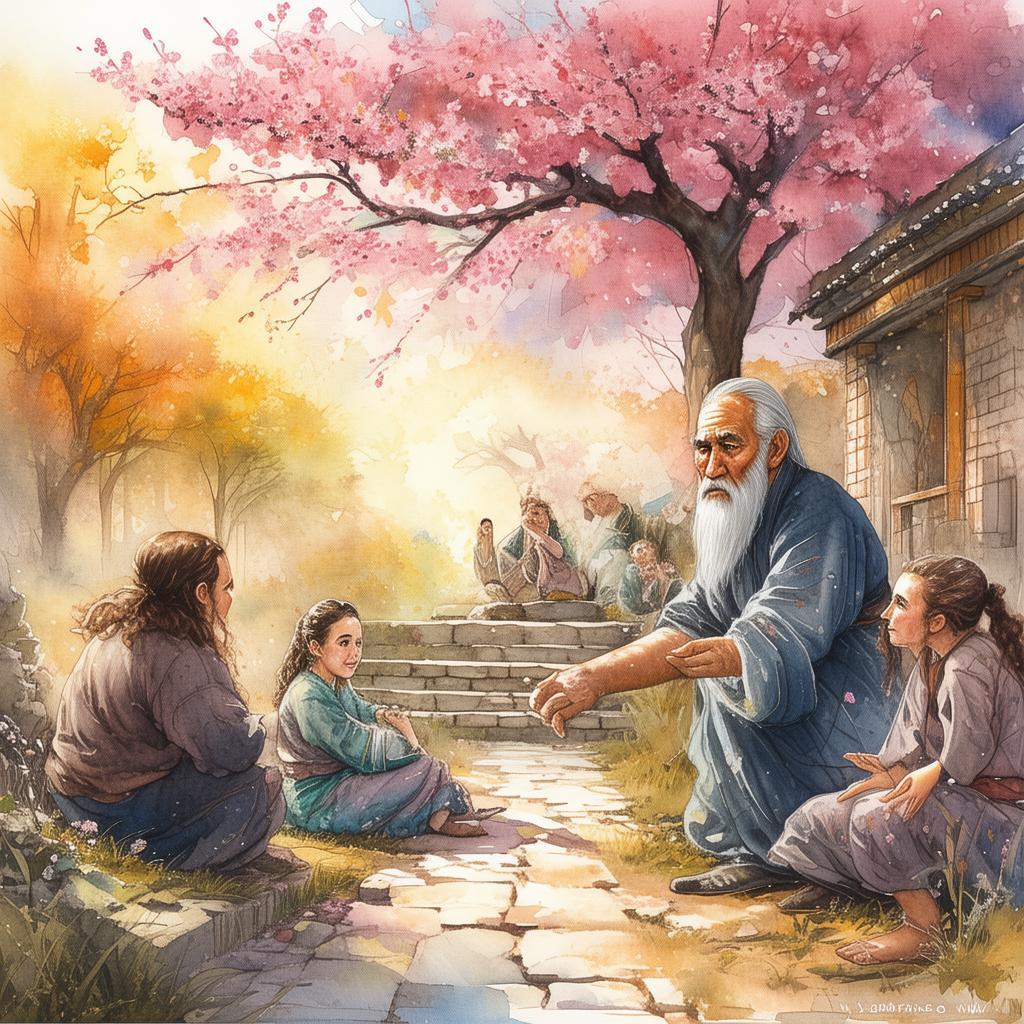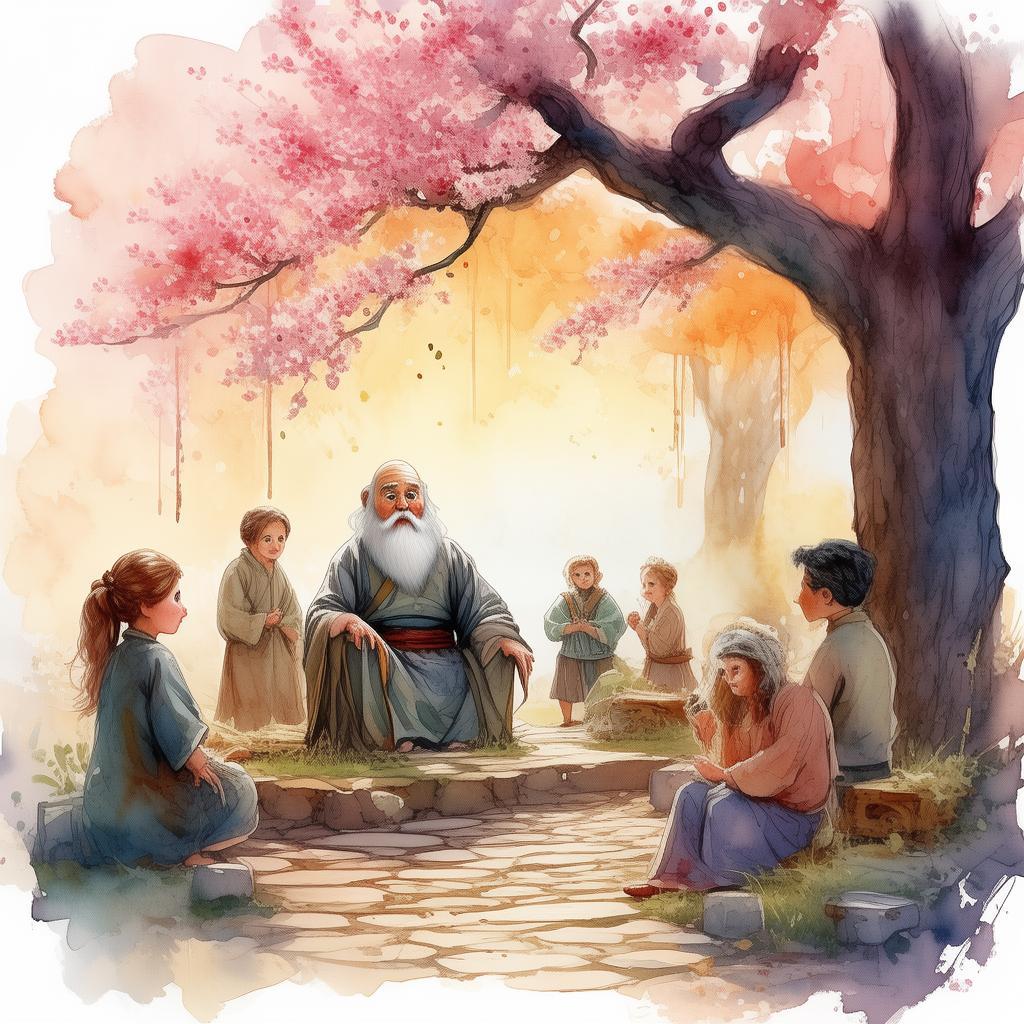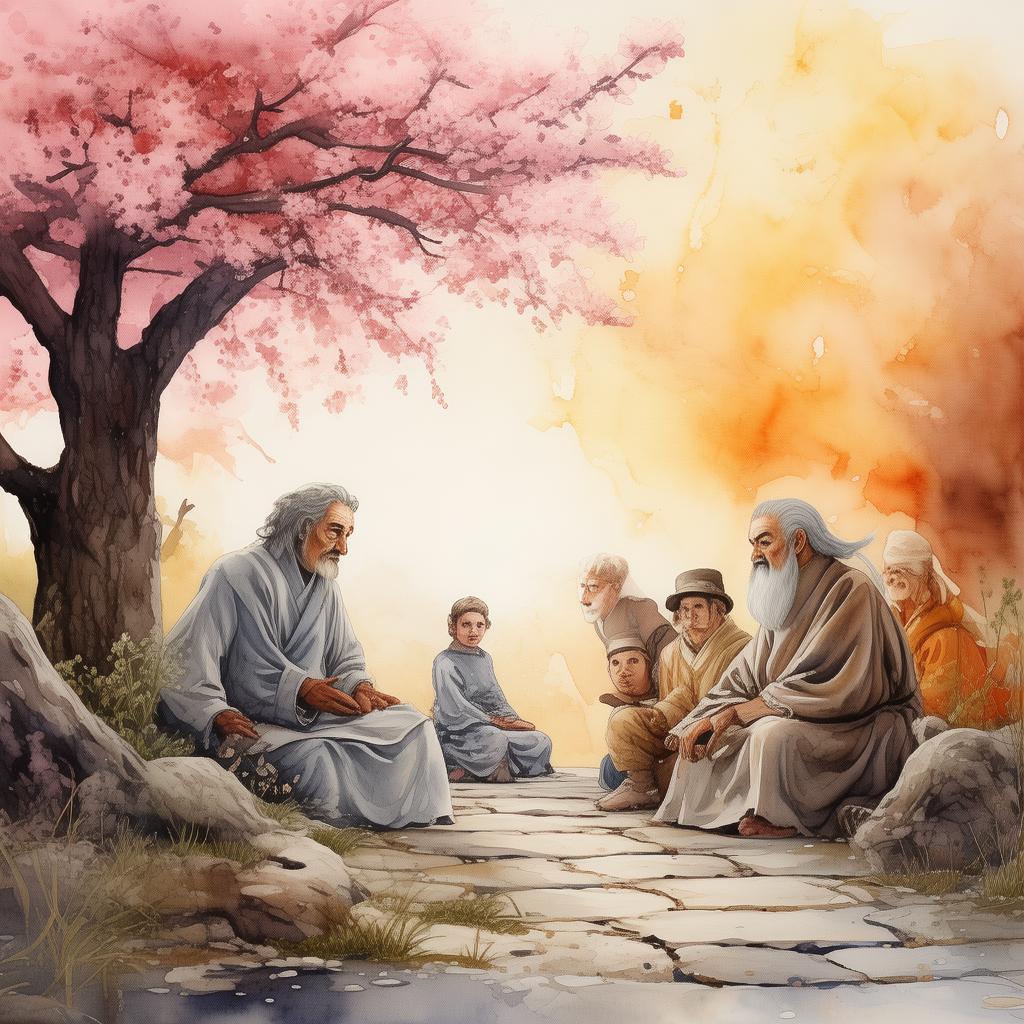The Roar of the Tiger, the Whisper of the Wind: Mi Xiaoquan's Stormy Symphony of Life
In the heart of ancient China, there lived a young woman named Mi Xiaoquan, whose life was a stormy symphony of life's trials and triumphs. She was a virtuoso of the guqin, a traditional Chinese musical instrument, but her path was fraught with the roar of the tiger and the whisper of the wind—symbols of the fierce passions and delicate nuances that defined her existence.
From an early age, Mi Xiaoquan was fascinated by the guqin's ability to express the unspoken, to convey the inexpressible. Her father, a renowned musician, recognized her talent and began to teach her the intricate melodies that had been passed down through generations. But as she grew, so did her struggles with the expectations of her family and society.
The first storm in Mi Xiaoquan's life was the roar of the tiger that was her own ambition. She longed to create music that would resonate with the soul, to compose a symphony that would reflect the tumultuous journey of her life. However, the traditional path for a young woman in her time was marriage and domesticity, not artistic expression.
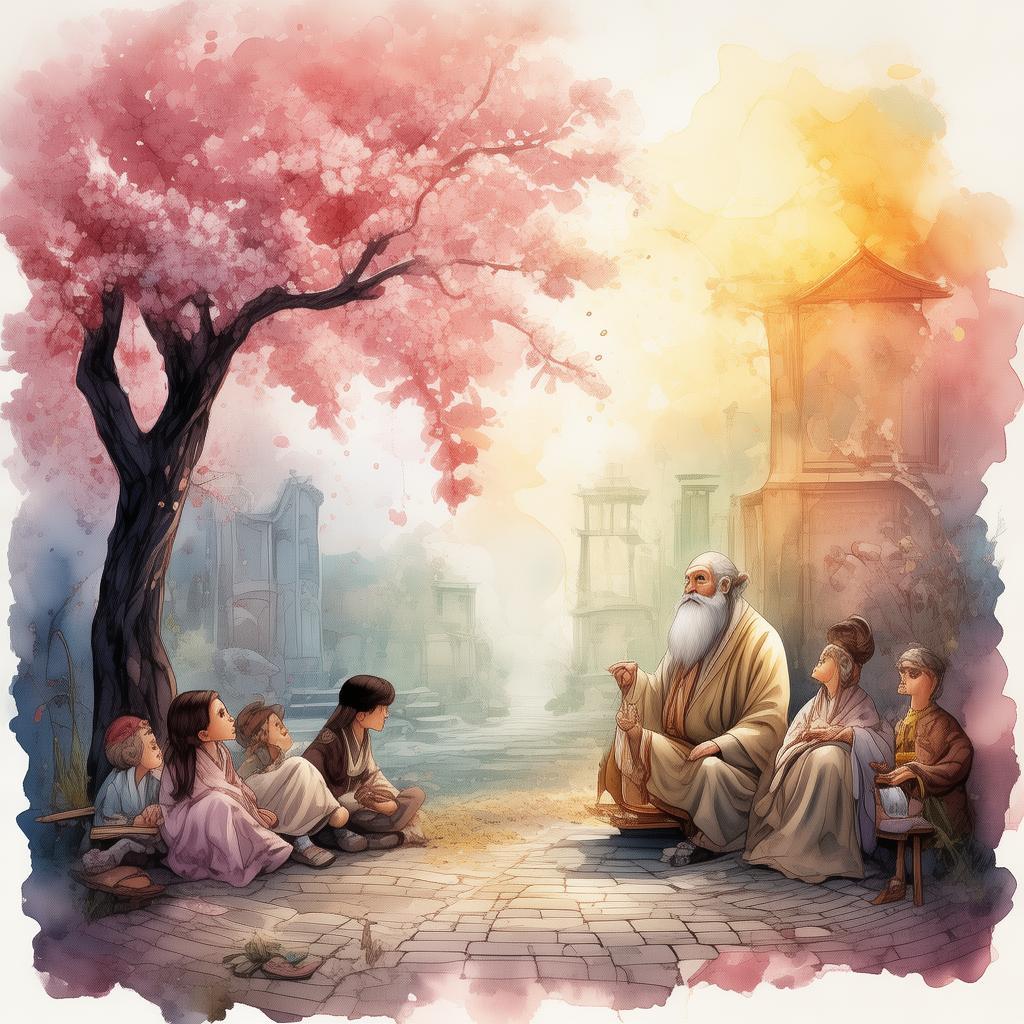
The whisper of the wind was the gentle yet persistent voice of her inner self, urging her to pursue her dreams despite the societal norms that sought to suppress them. It was a voice that echoed in her mind, a soft yet unwavering reminder of her passion and the power of her art.
Mi Xiaoquan's father, though supportive, was torn between his love for his daughter and the expectations of their community. He saw the stormy symphony within her, but feared that the world would not understand or appreciate it. "Mi Xiaoquan," he would say, "your music is like a storm, fierce and beautiful, but it is not the music of the common folk."
The young musician's heart was heavy with the weight of her father's words and the weight of her own ambitions. She knew that to follow her true calling, she would have to challenge the norms of her time, to defy the expectations of those who sought to silence her voice.
As Mi Xiaoquan grew older, she began to compose her own pieces, each one a reflection of her inner turmoil and the world around her. She played her music for anyone who would listen, from the lowliest of villagers to the highest of nobles, but it was not until she encountered a young nobleman named Jun that her life took a dramatic turn.
Jun was captivated by Mi Xiaoquan's music and her spirit. He saw in her the same stormy symphony that echoed within his own soul. Together, they formed a bond that was as fierce as the music they created. Jun stood by her side as she faced the wrath of her family and the disdain of her peers, his unwavering support becoming her lighthouse in the storm.
The stormy symphony of Mi Xiaoquan's life reached its climax when she was given the chance to perform at the imperial court. The roar of the tiger was loud and fierce, as she knew that her performance would either win her the respect of the emperor or result in her banishment. The whisper of the wind was strong, guiding her to play with all her heart and soul.
As she took the stage, the crowd was silent, expectant. Mi Xiaoquan began to play, her fingers dancing across the strings, each note a vivid stroke of emotion. The music was a storm, a symphony of life's joys and sorrows, of love and loss, of triumph and despair.
The audience was spellbound, their eyes wide with wonder and their hearts pounding with the rhythm of the music. When she finished, there was a moment of profound silence, followed by an explosion of applause. The emperor himself rose to his feet, his eyes brimming with tears.
Mi Xiaoquan had not only defied the expectations of her time but had also touched the hearts of the highest in the land. Her music was a stormy symphony that had transcended the boundaries of her life, becoming a force of nature that could not be contained.
In the end, Mi Xiaoquan's life was a testament to the power of the roar of the tiger and the whisper of the wind. She had found her voice, not in the eyes of the world, but in the depths of her own soul. Her music, a stormy symphony of life, had resonated with the world, and her legacy would be a reminder to all that the truest music comes from the heart, not the conformities of society.
The Roar of the Tiger, the Whisper of the Wind: Mi Xiaoquan's Stormy Symphony of Life was not just a story of music; it was a story of courage, of passion, and of the enduring power of the human spirit to overcome adversity and create something beautiful.
✨ Original Statement ✨
All articles published on this website (including but not limited to text, images, videos, and other content) are original or authorized for reposting and are protected by relevant laws. Without the explicit written permission of this website, no individual or organization may copy, modify, repost, or use the content for commercial purposes.
If you need to quote or cooperate, please contact this site for authorization. We reserve the right to pursue legal responsibility for any unauthorized use.
Hereby declared.
